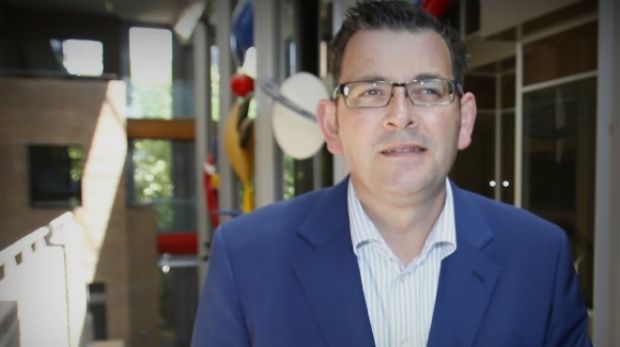
Premier Daniel Andrews.
The Premier, Daniel Andrews, honoured an election promise when he announced before Christmas that he would chair a 16-member Ice Action Task Force. He has made a commitment to crack down on ice.
Mr Andrews said he wanted to get to the heart of the problem by listening to the experts who see the effects of the drug. The task force includes experts in law, policing, mental health, youth, community, Aboriginal affairs and drug support services. However, there is one noticeable omission – it does not include anyone with experience as an ice user.
Past and present ice users have unique insights and could have made an invaluable contribution to the task force. More than 75,000 people in Australia use ice regularly, while many more use the drug recreationally. Some users say they love ice because it makes them feel creative, intelligent, powerful and confident. And it’s cheap – ice is considered to be the poor person’s cocaine.
People who use ice need opportunities to speak for themselves about their experiences. Their voices cannot be heard via experts. Why did they start using ice? What would encourage them to stop? What help do they need?
Task force members have been selected for their expertise in specific areas. People who have used ice are also experts – about their own lives. Including them might seem daunting, not least because using ice is a criminal activity.
But it also seemed daunting when users of mental health services began to be included in conversations about their care. Now consumer participation in mental health is de rigueur. The term “consumer consultant” was coined to reflect the value placed on the expertise of consumers and their contribution to policy and practice.
Rather than another talkfest, the government needs to listen not only to people who see the effects of ice but also to people who have used ice. Although there are no easy solutions, people who have used ice might be able to contribute useful ideas to minimise the harm that ice causes individuals, families and communities, suggest effective ways to support people who want to stop using it, and have some ideas on how to discourage people from trying it.
Clearly warnings from police, paramedics and psychiatrists that ice is the most dangerous drug they have ever seen have not been effective in discouraging people from trying it. An effective action plan requires everyone’s interests to be represented at the table, not just professional experts.
Dr Sarah Russell is the principal researcher at Research Matters in Melbourne.
